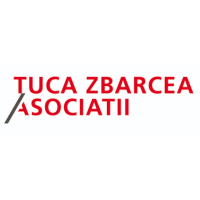

Head of Legal | Compania Romprest Service SA




Petru Ursache
Head of Legal | Compania Romprest Service SA
Team size: Four
What are the most significant cases, projects or transactions that you and/or your legal team have recently been involved in?
Over the past year, my team and I have been at the forefront of managing the company’s legal exposure across a uniquely complex public-private interface.
A primary project has been the strategic management of our extensive litigation portfolio, encompassing over 500 active cases. This diverse caseload spans administrative, employment, and enforcement procedures, requiring my team and I to handle everything from drafting legal actions to direct court representation or managing the files together with the external lawyers. We also manage all disputes with former clients, shareholders, and various public authorities.
Concurrently, I have overseen all aspects of our corporate governance, navigating demanding General Meetings of Shareholders and Board of Directors meetings characterised by a large and active membership.
This role extends to navigating an exceptionally demanding and often adversarial relationship with local authorities. It requires representing the company in contentious Local Council meetings, where I must formulate compelling legal arguments under immense time pressure. Success in this environment is contingent not just on legal acuity, but on mastering the deep and complex history of the contractual relationship, ensuring every argument is informed by a crucial institutional memory to defend our rights.
Furthermore, a significant portion of our work involves managing complex regulatory challenges and enforcement procedures. This includes handling intricate enforcement files with bailiffs and responding to multifaceted inquiries from national and local authorities. This requires constant dialogue with key regulators, from those governing public services and employment to environmental agencies, reflecting the broad impact of the company’s public service activities.
How do you approach managing legal aspects during periods of instability or crisis to ensure the organisation’s resilience?
Given that our operational environment is characterised by inherent instability, stemming from frequent disagreements with our main contractor and among shareholders, my approach to crisis management is both structured and agile.
When a crisis emerges, it invariably generates an influx of urgent tasks requiring flawless execution under tight deadlines. My first step is to dedicate myself to a rapid and thorough analysis of the situation. I then deconstruct the complex problem into a series of clear, manageable workstreams. These tasks are then delegated across my team, leveraging each member’s strengths to ensure a coordinated and timely response.
To augment our internal capabilities, I maintain a close-knit relationship with a company’s trusted external counsel, integrating them seamlessly when specialised expertise or additional bandwidth is required.
Critically, I approach these periods with a mindset of calm and enthusiasm. I firmly believe that moments of crisis are not just challenges to be overcome, but invaluable opportunities to learn, innovate, and develop our professional and legal acumen.
Based on your experiences in the past year, are there any trends in the legal or business world that you are keeping an eye on that you think other in-house lawyers should be mindful of?
The key trend I am closely monitoring is the increasing hybridisation of the in-house legal role, especially for companies operating at the intersection of public and private sectors. The traditional focus on commercial law is no longer sufficient. Today, a significant part of our role involves deep expertise in administrative law and managing intricate relationships with public authorities.
This requires a shift from being a purely legal advisor to a strategic partner who understands public governance, effectively navigating regulatory complexities to protect the company’s interests.
What is a cause, business or otherwise, that you are passionate about? Why is this?
I am deeply passionate about environmental law and policy.
Working as in-house counsel for a waste management company provides me with a unique vantage point to witness the direct impact of EU and national legislation on our environment. I am driven by the challenge of assimilating and applying these complex, evolving regulations.
I see this field as more than just a professional specialty; it is a matter of global concern and shared responsibility. Enforcing robust environmental laws is essential for the well-being of both people and businesses.
For me, a strong commitment to environmental compliance is a clear sign of corporate awareness and responsibility, a principle I am dedicated to upholding in my daily work.
Looking forward, what trends do you foresee in the legal landscape over the next 5–10 years that companies should prepare for?
Looking forward, I foresee three major trends that will define the legal landscape for companies in the next 5-10 years. First, the role of in-house counsel will increasingly merge with that of a business strategist, with a strong emphasis on Legal Operations. The pressure to demonstrate value will drive legal departments to adopt more technology, not just for research, but for process automation, contract management, and predictive risk analysis. Companies that fail to invest in making their legal function more efficient and data-driven will fall behind.
Second, ESG (Environmental, Social, and Governance) compliance will transition from a reputational asset to a core legal requirement. We will see a surge in mandatory, detailed regulations around sustainability and supply chain ethics. This will create significant new areas of liability and due diligence, forcing companies to embed ESG principles into their governance and contractual frameworks as a matter of legal necessity.
Finally, as business models evolve, particularly in the sharing economy and tech-enabled services, we will face an era of hyper-specialised regulation. General legal knowledge will be insufficient. Companies will need to prepare for a complex web of niche rules governing everything from data privacy in new contexts to the gig economy, requiring legal teams to be far more agile and specialised in their expertise.